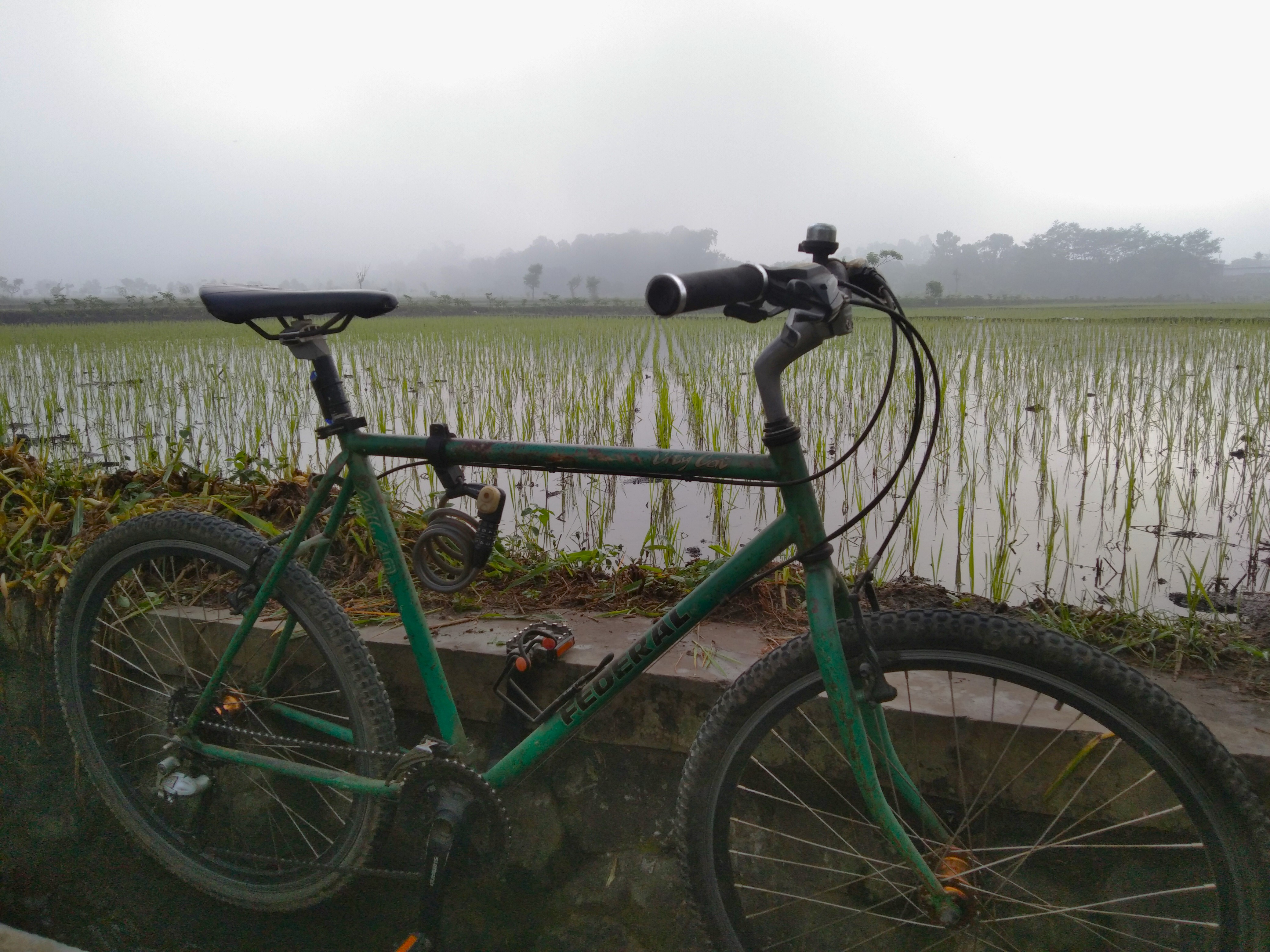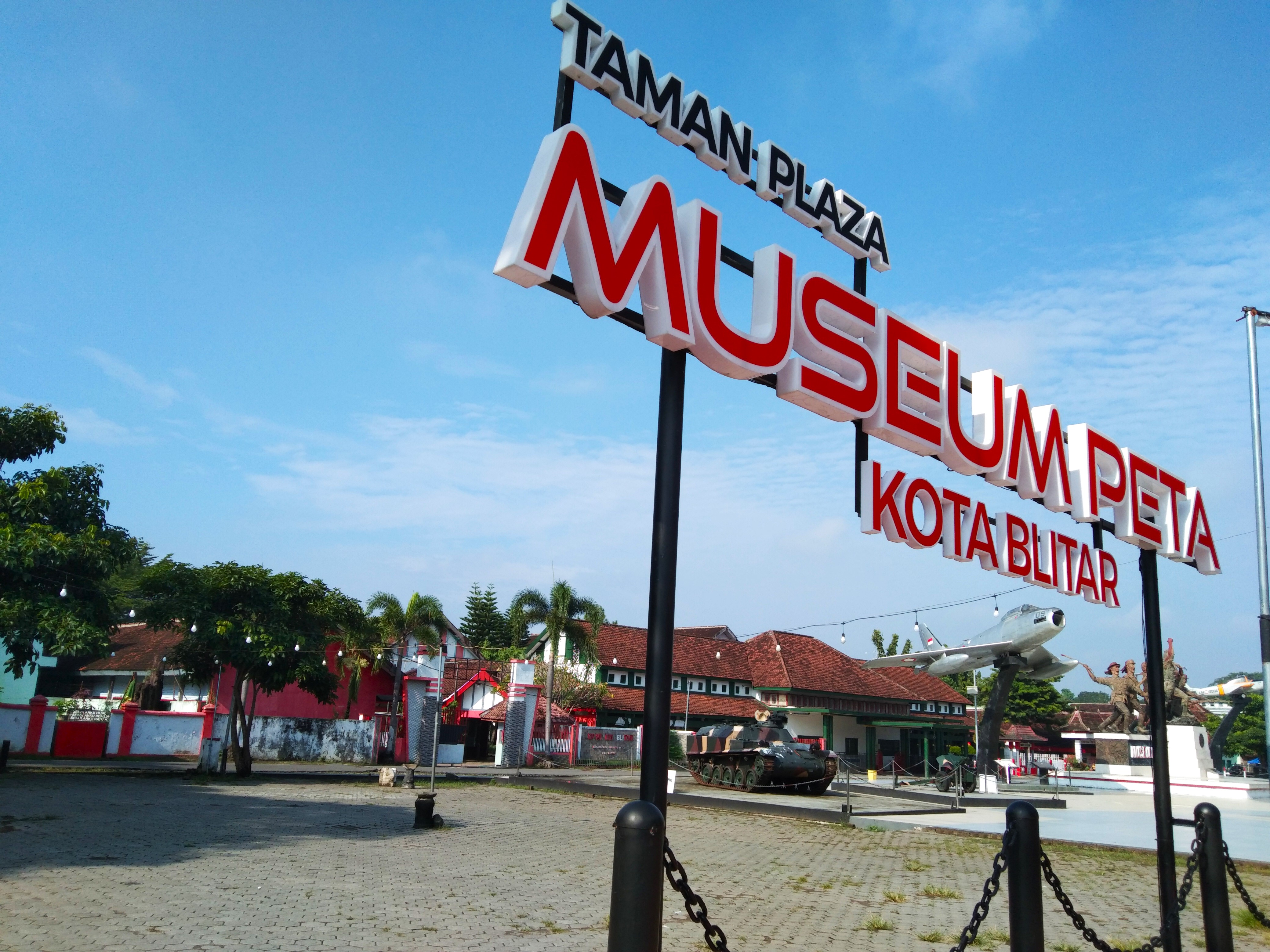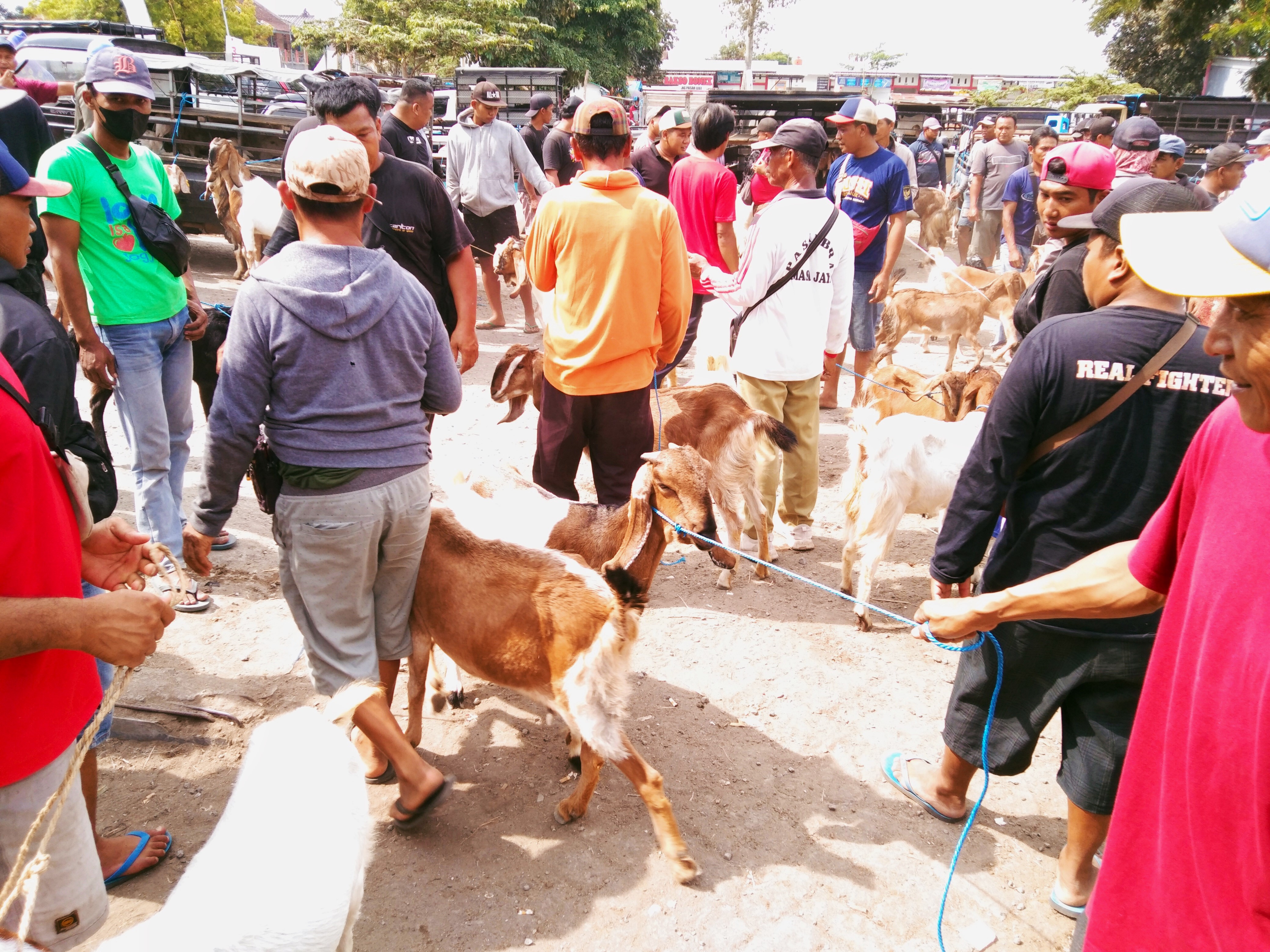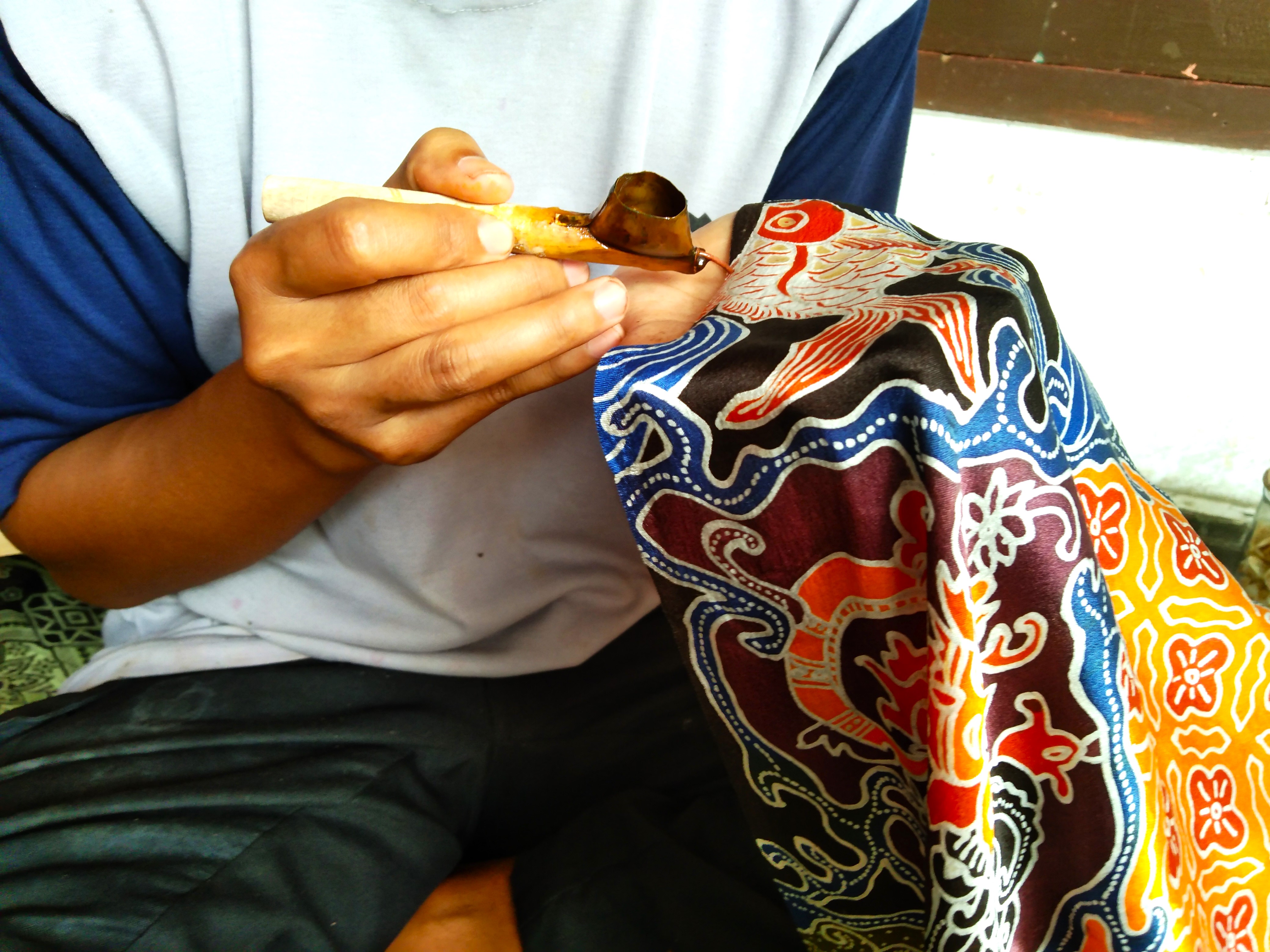
A Gentle Morning in Blitar: Where History Whispers and Time Slows Down
It was one of those mornings that linger in your memory, not because of grand sights or loud excitement, but because of its softness. The sun in Blitar was still shy, hesitating behind the trees as if peeking between the leaves to check if the city was ready to wake. The roads lay mostly empty. No roaring engines, no impatient honking, only the soft squeak of our bicycle wheels and the occasional ripple of laughter from our group echoing through the calm.
We weren’t rushing. We weren’t chasing views or ticking off destinations from a list. We were tuning in to the rhythm of Blitar itself, slow, sincere, and full of quiet meaning. With every pedal stroke, the morning breeze carried something intangible yet deeply felt: the spirit of a small city that doesn’t try to impress you, but gently invites you to feel at home.
Unlike the heavily touristed destinations of Malang, Bromo, or Yogyakarta, Blitar doesn’t dazzle with crowds or spectacle. It speaks in whispers. It breathes in stillness. It welcomes those who seek depth over display. And if you listen closely, it has so many stories to tell, of history, resistance, daily life, and artistry.
Our journey began on Sudanco Supriyadi Street, a road steeped in the past. On either side, colonial-era houses stood proudly, their Indisch architecture a blend of European elegance and tropical sensibility. These homes weren’t just relics; they were alive. Lived in. Maintained with care and love by generations who understand the value of memory.
One home in particular opened its gates to us. We were invited inside by the warm, smiling descendants of Supriyadi, the national hero who once led the PETA (Defenders of the Homeland) movement against Japanese occupation. Sitting in their living room, surrounded by old portraits, teakwood furniture, and the soft scent of nostalgia, we didn’t feel like tourists. We felt like welcomed guests, part of a story still being lived.
A short ride further west took us to the PETA Museum, modest in appearance but rich in meaning. The walls spoke of sacrifice, of resistance, and of young Indonesians who dreamed of freedom long before independence became reality.

But Blitar isn’t just a city of history; it is a living, breathing place where tradition meets everyday life. From there, we cycled toward the town’s vibrant traditional market. Stalls overflowed with fresh produce, spices, snacks, and cheerful banter. Not far from it stood the traditional animal market, a scene unchanged for generations, where farmers and traders gather with a rhythm only found in rural Indonesia.
We then made our way to the Boeng Karno Library, a quiet sanctuary of thought and memory dedicated to the first president of Indonesia, who had deep ties to this city. The calm, book-filled space offered a perfect pause before our final stop.
Our journey ended where patterns and stories are woven into fabric: a local batik workshop. Here, artists dipped canting into hot wax with hands steady from years of practice. Each piece told a tale of heritage, identity, and patience, echoing the very essence of Blitar itself.
This wasn't just a morning ride. It was a slow unraveling of a city’s heart, a quiet dialogue between the past and the present, and a gentle reminder that sometimes, the most unforgettable destinations are the ones that don’t shout, but whisper.
 The Traditional Market: More Than a Place of Trade, It’s a Place of Stories
The Traditional Market: More Than a Place of Trade, It’s a Place of Stories
Arrived at the market just as the day was beginning. Vendors were opening their stalls, and the air was filled with the aroma of spices, fresh vegetables, and warm fried snacks. Someone offered tempeh wrapped in banana leaves, another called out offering Blitar’s signature jenang. Their voices were loud, their faces friendly.
In one corner, an old woman was stringing jasmine flowers to sell for offerings. I stopped for a moment and bought a small bundle, not for prayer, but as a reminder that in the market, life isn’t just about transactions. It’s about sharing space and stories.
 The Animal Market: Between Clamor and Tradition
The Animal Market: Between Clamor and Tradition
We turned our wheels toward the animal market, not far from the traditional market. The atmosphere was louder, more crowded, yet uniquely authentic. Goats bleated, cows were herded past us, chickens clucked in bamboo cages, and farmers negotiated prices with spirited voices. One middle-aged man gently stroked the cow he was about to sell.
“I’ve raised him since he was a calf,” he said, with pride in his eyes and a touch of sadness.
Here I realized: the animal market isn’t just about buying and selling livestock, but about a deep bond between humans, nature, and sustenance.
The Footsteps of Thought in the Boeng Karno Library
From the vibrant buzz of the market, we cycled on to a place that was quiet yet full of voices, the Boeng Karno Library. The building was grand, but humble. Inside, hundreds, even thousands, of books lined the shelves. We removed our helmets and entered the reading room. The atmosphere was reverent.
In a special section sat the writings and speeches of Boeng Karno, his thoughts on the nation, independence, and civilization. I opened a thick volume and sat in a quiet corner. For a while, we were no longer cycling on roads, but riding through the thoughts of the Proclaimer.
Outside, the sound of bikes returned. We continued, this time toward a grounded, creative experience.
 Color That Speaks: Batik Workshop in Blitar
Color That Speaks: Batik Workshop in Blitar
We arrived at a local batik home studio. The front yard was wide, with lines of colorful cloth drying under the sun. Inside, the scent of malam (batik wax) and heated copper filled the air.
Here, we learned that batik isn’t just drawing on fabric; it’s expressing life’s philosophy in patterns. A batik artisan showed us how to use the canting. Our hands trembled at first, but she patiently guided us. Some of us tried drawing Blitar's signature, Simple designs, but filled with meaning: prosperity, strength, and freedom.
We didn’t just leave with the batik cloth we made ourselves; we left with a sense of pride in becoming part of a living heritage.
Lunch in: The Warmth of Flavor, the Depth of Story
After cycling through markets, libraries, and batik, our stomachs began to grumble.
But what awaited us wasn’t a fancy restaurant, it was a modest home with a shaded yard, and the smell of cooking rising from an open kitchen.
This wasn’t just a meal. It was a homecoming not to our own house, but to a house of flavors, where homemade food offered more than just fullness.
Sitting on simple wooden chairs. In front of you, a spread of local dishes that might be new to some:
Sayur lodeh, with soft tempe, tofu, fish, and chicken, Urap: vegetables tossed in fragrant grated coconut and aromatic kencur (Kaempferia galanga). Steaming white rice, served straight from a traditional rice steamer. And for dessert: Es Pleret, a local iced treat.
Our host explained how each dish was prepared, not with exact measurements, but with “a sense of taste passed down through generations.”
More Than Delicious - This Is the Taste of Home
We ate slowly, chatting with our host. Each bite seemed to stir something familiar that couldn’t be explained, only felt. You might find yourself thinking, “It’s been so long since I’ve eaten something this comforting.” And truly, home cooking isn’t just about taste. It’s about warmth, attention, and a kind of closeness we rarely find in restaurant dining.
Humble Dishes, Lasting Memories
This lunch wasn’t just a break in our journey. It was an essential part of the story itself. On your plate was the true taste of Blitar: simple, honest, and deeply touching..And we knew this wasn’t just food. It was a gesture of love, passed through rice, vegetables, and hands that gave with heart.
Tag: accomodation, architecture, architecturelovers, batik, bicycle, bike, blitar, blitarstopover, botani, bromo, coffe, colonialhistory, community, cooking, culinary, culturalexplorer, culture, culturelovers, cycling, dutch, ecotourism, escape, experience, explore, familytravelers, farmer, food, green, harvest, heartofjava, heritage, hiddencharm, hiking, history, hospitality, humaninterestfotographer, indonesianculturaltourism, indonesianhistorytourism, indonesiantourism, istanagebang, javasuntoldhistory, jogjamalang, kebonrojo, laboratorium, landscapefotographer, local, locallovers, luxury, malangjogja, nature, naturelovers, offthebeatenpath, onedayescape, pauseinblitar, penatarantemple, plantations, redefineluxury, sabatokaliwuanvibes, slowtravel, slowtraveler, soekarno, soekarnolegacy, soekarnomuseum, soekarnoroots, soekarnostomb, station, takeabreak, tradition, traditional, traditionalfoods, traditionalmarket, train, travel, travelersfotographer, trekking, TUInetherlands, untoldstory, village, visit